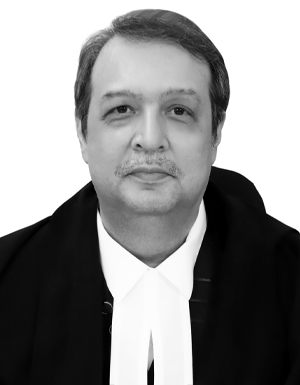
Meet Justice Jamshed Burjor (J.B.) Pardiwala and his Notable Judicial decisions
Justice Jamshed Burjor (J.B.) Pardiwala, born on August 12, 1965, in Mumbai, hails from a distinguished family of lawyers in Gujarat. He graduated in law from K.M. Law College, Valsad, in 1988 and began his legal practice in 1989. Justice Pardiwala served as standing counsel for the Gujarat High Court and its subordinate courts and was a member of the Bar Council of Gujarat. He was elevated as an Additional Judge of the Gujarat High Court in 2011 and became a permanent judge in 2013, authoring over 1,800 judgments during his tenure. In May 2022, he was appointed to the Supreme Court of India, where he is expected to serve until August 2030.
Justice Pardiwala is known for his expertise in criminal, civil, taxation, commercial, and environmental matters. He has been described as a “judge of the masses,” recognized for his gentle demeanor and uprightness. His judicial philosophy often emphasizes constitutional accountability, social justice, and the need for legal reforms.
Among his most notable Supreme Court decisions is the landmark 2024 judgment delineating the powers of Governors and the President over state legislation. Justice Pardiwala’s bench set timelines for Governors to act on bills and clarified that the President’s decision on reserved bills is subject to judicial review. The ruling was hailed as historic for curbing executive delays and upholding legislative supremacy, though it drew criticism from some quarters of the central government.
Justice Pardiwala was also part of the Constitution Bench that upheld the 103rd Constitutional Amendment, introducing reservations for Economically Weaker Sections (EWS). In his separate opinion, he emphasized that “weaker sections” in Article 46 are not limited to Scheduled Castes and Tribes, and argued that reservations should not continue indefinitely. He advocated for periodic review of backward class identification and suggested that economic criteria could help move beyond caste-based reservations.
Earlier, as a Gujarat High Court judge, he held the state government responsible for failing to protect religious structures during the 2002 riots, marking a significant judicial stance on state accountability. His remarks on reservation during the Patidar agitation led to a brief controversy and an impeachment motion, which he resolved by expunging the contested comments.
Justice Pardiwala’s judgments reflect a commitment to constitutional values, judicial independence, and evolving social realities. With several years left in his tenure, he is poised to remain a key figure in shaping Indian jurisprudence












comments